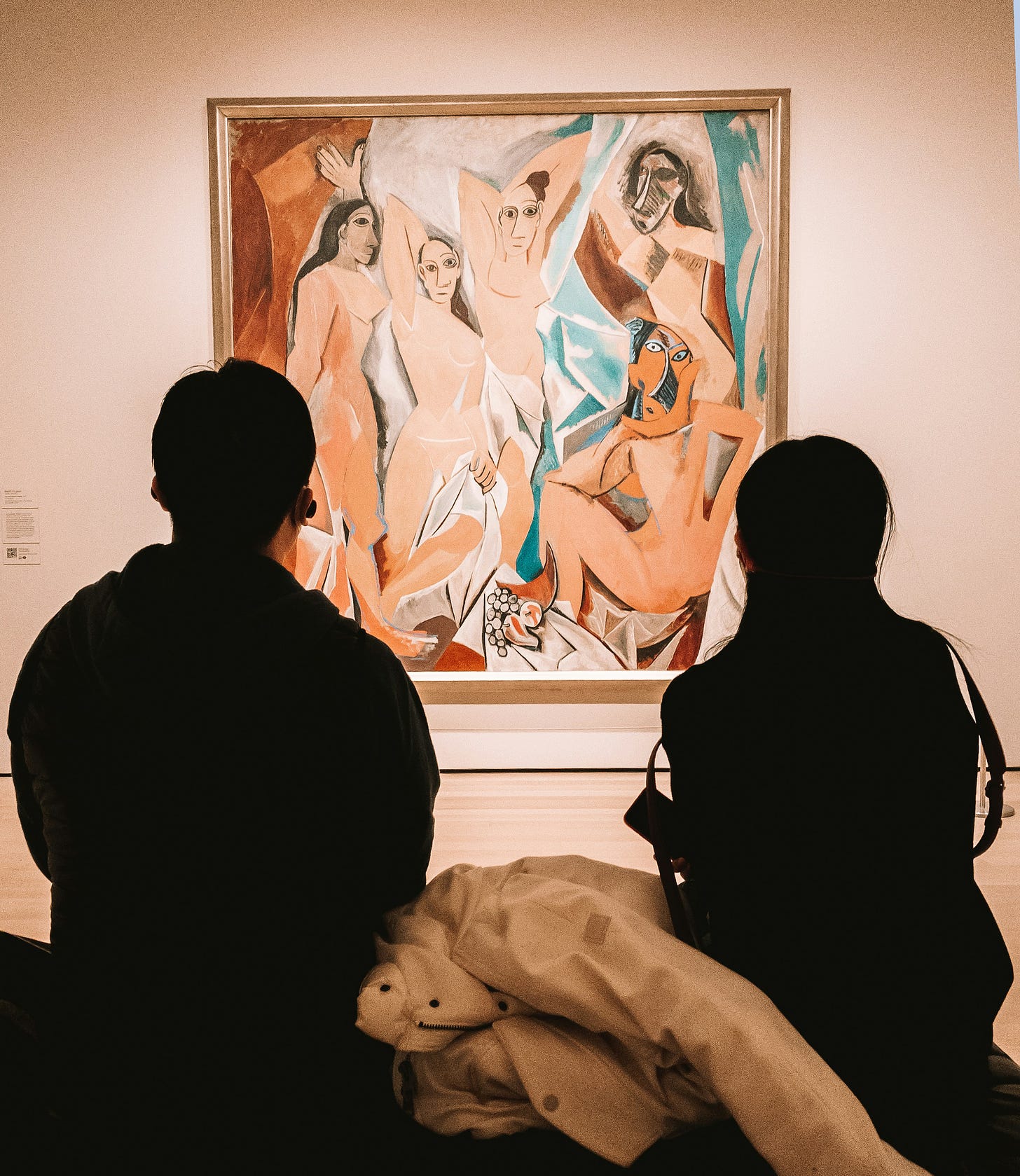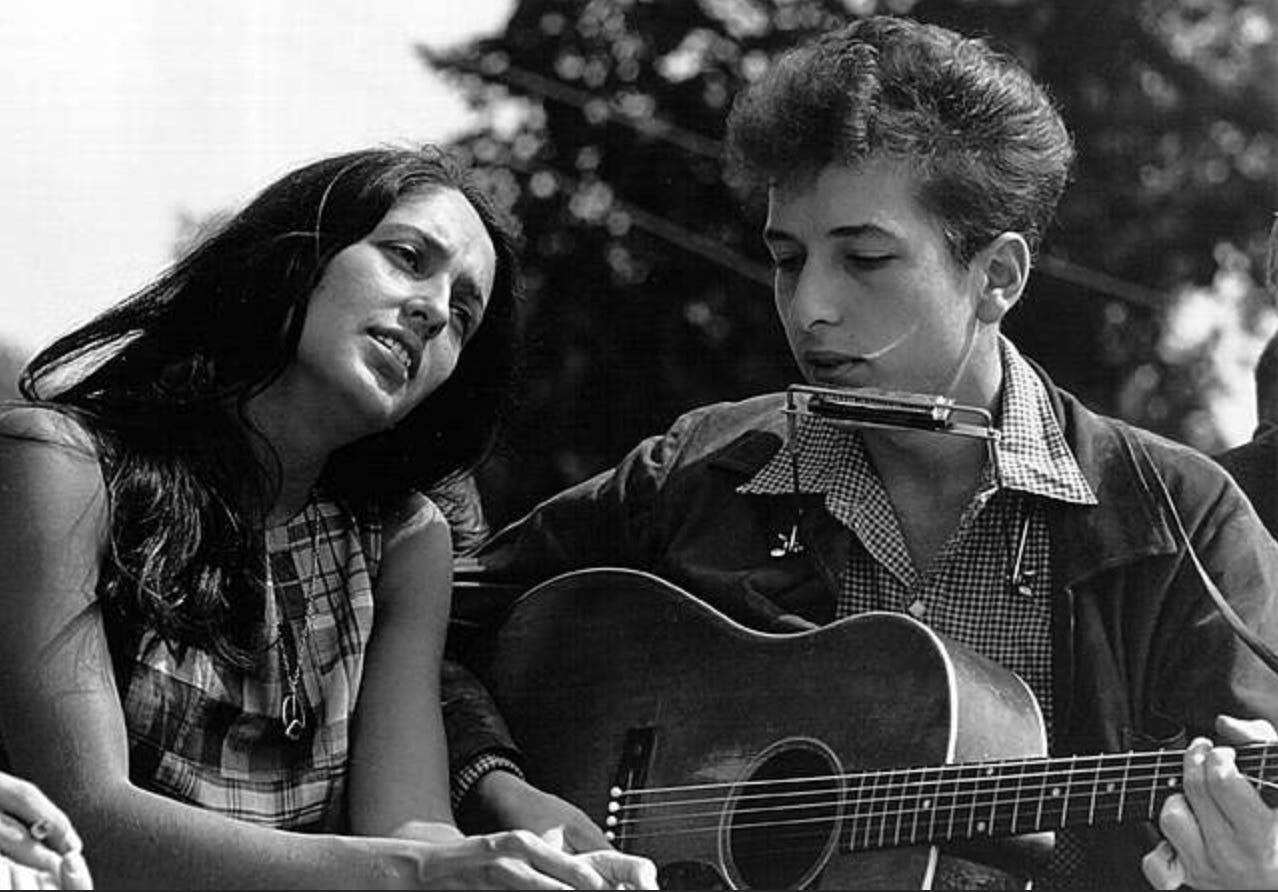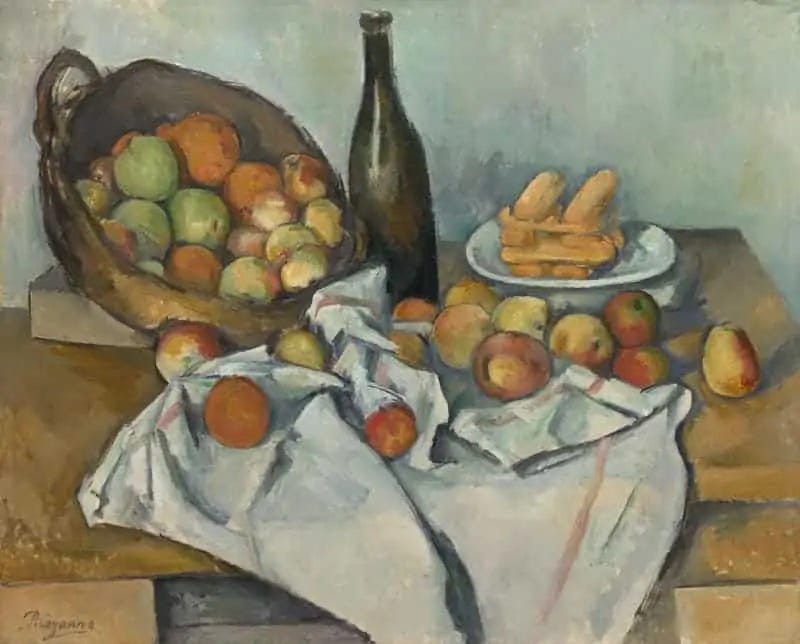Conceptual vs Experimental Creator
Are you a Picasso or a DaVinci? Are you a Dylan or a Hitchcock? Are you both?

I came across the other day a very insightful essay written by
. In this post, he mentioned one David W. Galenson, an economics professor at The University of Chicago. David wrote a book titled “Old Masters and Young Geniuses: The Two Life Cycles of Artistic Creativity”.I have yet to read the book, but I listened in on one podcast where he was interviewed about his findings, and I was fascinated with the insights he got from his research.
David specializes in Economic History and during his research, he discovered that there are two very different ways of going about creativity and achieving success.
The first path is what he called the Conceptual Innovators. These are people who make dramatic creations or discoveries, and they usually do this when they are very young.
They are the young geniuses.
Some examples of creators who belong to this ‘club’ are Picasso, Van Gogh, T.S. Elliot, Hemingway, Andy Warhol, Damien Hirst, Steve Wozniak, Bob Dylan and many others.
The second path is what he called the Experimental Innovators. These are people who accumulate their skills slowly through trial and error, and many many - experiments. They usually don’t achieve their ‘Eureka’ moment until almost at the end of their life.
They are the late bloomers, the old masters.
Some examples of creators who belong to this group are Cezanne, DaVinci, Rembrandt, Monet, Jason Pollock, Clint Eastwood, Alfred Hitchcock - and I guess the majority of the population of this world.
So how would these 2 paths of creativity differ?
Idea vs Reality
The research revealed that the conceptual creators’ creative goal is to express their ideas or emotions through their work.
They have the power of abstraction that enables them to produce innovations and breakthroughs relatively quickly.
They are able to plan their work meticulously in advance and execute it systematically and decisively.
These ideas however are not always totally new. It can be a combination of old ideas, mixed and packaged as something new and innovative.
David even as much said that conceptual creators are often plagiarists and thieves, and he mentioned Bob Dylan who wrote ‘Blowing in the Wind’ which went on to become number one in the chart. He was 22!
See, Dylan didn’t have any formal background in music or singing! He was largely self-taught and was influenced by various musicians of his time.
Dylan was a Conceptual genius musician whose contributions to the world of music remain until today.
The experimental creators on the other hand prefer to ‘recreate’ what they perceived, what they’ve in the real world and manifest these onto their creations.
This typically involves a long empirical process that spans years before it comes to something that the creator wants.
Sometimes this becomes a long-life goal that turns into an obsession, and in pursuit of unattainable perfection, the creator ends up taking a drastic measure (e.g. end their life).
The talent of experimental creators is for the real and the concrete; they have an ability to accumulate evidence and to solve complex problems with knowledge gained from their experience. They gradually accumulate the wisdom and judgment that they use to approach their work.
David portrayed Paul Cezzane as an archetypal Experimental Innovator. He painted his masterpiece above at the age of 56.
Plot vs Character
I didn’t know about this until I listened to David’s interview, but apparently, in literature, there is always a tradeoff between the importance of the plot vs the importance of the characters.
Writers need to choose between a strong character development or stick with a rigid plot, but not both. As it turns out, if you want a strong character it might not want to do what the plot expects the characters to do.
Experimental writers would tend to pick the strong character side, while Conceptual writers would side with the plot.
Do you know any literature which is strong in both departments?
Are you Conceptual or Experimental?
By now you have already a good idea of what constitutes a Conceptual Creator vs an Experimental Creator.
I am no Cezzane nor Hitchcock, but having just turned 50 I think I am more on the side of Experimental :)
There is a question of whether we can be both. David said in his interview that it would be difficult to change between these two mindsets.
But having been working in technology sector for a few decades I’ve witnessed plenty of innovations which started as a conceptual - a stroke of genius - which then carried on as experimental.
Apple was started by Steve Wozniak and Steve Jobs, but Woz was really the genius behind the technology. Today Apple keeps the innovations alive by iterating, accumulating and learning from knowledge from the past and vision for the future. I believe that Apple encompasses the two types of innovators.
Maybe it doesn’t matter which side we are on, because it doesn’t matter if you are talented or not, as long as you put down your goal and make the effort to work towards achieving that goal, then any of us can have that ‘Eureka’ moment.
I leave you with one of the greatest song of all time - “Blowin in the wind” - Bob Dylan







Great post! Thanks for the mention.
I'd say conceptual, but minus the 'genius' I fear. Interesting read though!